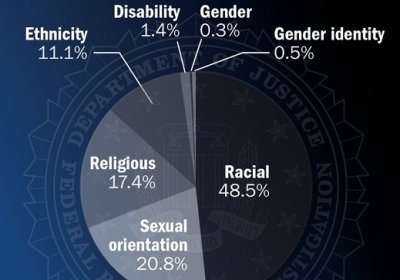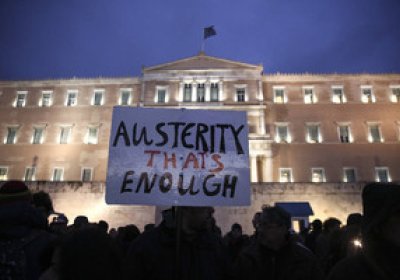Police are searching for a gunman who killed nine people and injured several others at a historic African American church in downtown Charleston, South Carolina, in what is being called a hate crime by local officials.
As of the morning of June 18, the perpetrator was still at large, local police officials said. “I do believe this is a hate crime,” the police chief, Greg Mullen, said during a late night statement, according to the Washington Post.
Democracy
A rally for justice for Eddie Murray, a young Aboriginal man who was killed by "persons unknown" while detained in Wee Waa police station in north-western NSW on June 12, 1981. Anna Murray, Eddie's younger sister recalled answering the door to the police who came to arrest her brother 34 years ago. She was the last member of the family to see Eddie alive. She added that there had never been a protest in Wee Waa over her brother's death and she proposed that one be held there this time next year.
British police and soldiers colluded in state terror with loyalist gunmen and bombers in the murders of over 120 Catholic civilians in the Northern Ireland conflict. They then covered up their misdeeds.
That is the unchallenged finding of 15 years of research by The Pat Finucane Centre and Justice for the Forgotten in Ireland, now chronicled in the acclaimed book Lethal Allies: British Collusion in Ireland whose author, Anne Cadwallader, is visiting Australia this month (details below).
Venezuelan President Nicolas Maduro called for an urgent meeting of the Community of Latin American and Caribbean States (CELAC) to discuss tensions and possible coup plots against the government of Ecuadorean President Rafael Correa.
“It's time for us to activate all our solidarity with the people of Ecuador and with President Rafael Correa,” Maduro said on June 13 during an event in the Venezuelan state of Miranda. The call comes after Correa denounced a coup plot being hatched against him as he returned to the country on June 14 from the European Union-CELAC meeting in Brussels.
The US government issued a congratulatory statement on June 9, praising the Mexican people after June 7 elections, despite large protests and boycotts held by activists and teacher unions across the nation.
The elections were marked by violence, but the US Department of State considered the process democratic, saying: “We congratulate the people of Mexico for exercising its democratic right to vote and choosing its leaders.”
The leftist political party led by two-time former presidential candidate Andres Manuel Lopez Obrador will govern in areas representing more than 8 million people after Mexico's June 7 elections.
Lopez Obrador's National Regeneration Movement (Morena) took part for the first time in the mid-term elections. It won in six of the 16 districts of Mexico City, breaking the long-time hegemonic rule of the once popular Democratic Revolution Party (PRD) in the country's capital, which won five.
WikiLeaks released 17 secret documents from the Trade In Service Agreement (TISA) negotiations on June 3. The documents have confirmed the fears of campaigners around the world that TISA is designed to benefit corporations at the expense of workers and the general public.
Kenia Serrano, president of the Cuban Institute for Friendship with the Peoples (ICAP) and a member of Cuba's National Assembly, attended the recent national consultation of the Australia-Cuba Friendship Society. Green Left Weekly's Denis Rogatyuk spoke with her about recent developments of the Cuban Revolution.
***
Cuba has just been removed from the list of state-sponsors of terrorism. How do you think this will affect Cuba’s relations with the United States?
 Rally against police brutality in McKinney, Texas, June 8, 2015.
The head of the US's largest organisation of Black lawyers and judges joined activists and community leaders on June 10 to call for national police reform to address racial bias. She also backed calls for an independent investigation into a white police officer's recent assault of a young Black girl in her bathing suit at a pool party in McKinney, Texas.
Rally against police brutality in McKinney, Texas, June 8, 2015.
The head of the US's largest organisation of Black lawyers and judges joined activists and community leaders on June 10 to call for national police reform to address racial bias. She also backed calls for an independent investigation into a white police officer's recent assault of a young Black girl in her bathing suit at a pool party in McKinney, Texas.
As opponents of Ecuador's President Rafael Correa made calls on social media for a military coup, a caravan of vehicles by right-wing protestors descended on the highway leading to Quito's international airport on June 14 in a bid to block Correa from being able to safely return to the country.
Social media posts called on those opposed to Correa's democratically-elected government to flood the highway and try to take the airport. Pro-opposition newspaper El Comercio said more than 200 cars participated in the convoy.
In the June 7 Turkish elections, President Recep Tayyip Erdogan's Justice and Development Party (AKP), which has ruled Turkey since 2002, won the largest vote and share of the new parliament – 258 of the 550 seats. But in a dramatic rise in its vote, the left-wing People's Democratic Party (HDP) came equal third, winning 80 seats.
For a while in late May, it looked as if negotiations over terms for releasing the last €7.2 billion owed to Greece under its second bailout package with the “Troika” of the European Union, European Central Bank and International Monetary Fund might have some chance of success.
The commentary from the SYRIZA-led Greek government's negotiators and from its creditors was of “fruitful discussions” and “meaningful progress”. Greek government spokespeople even spoke of reaching an agreement “within a week or two”, at the latest by the June 18 meeting of the eurozone finance ministers.
- Previous page
- Page 298
- Next page










